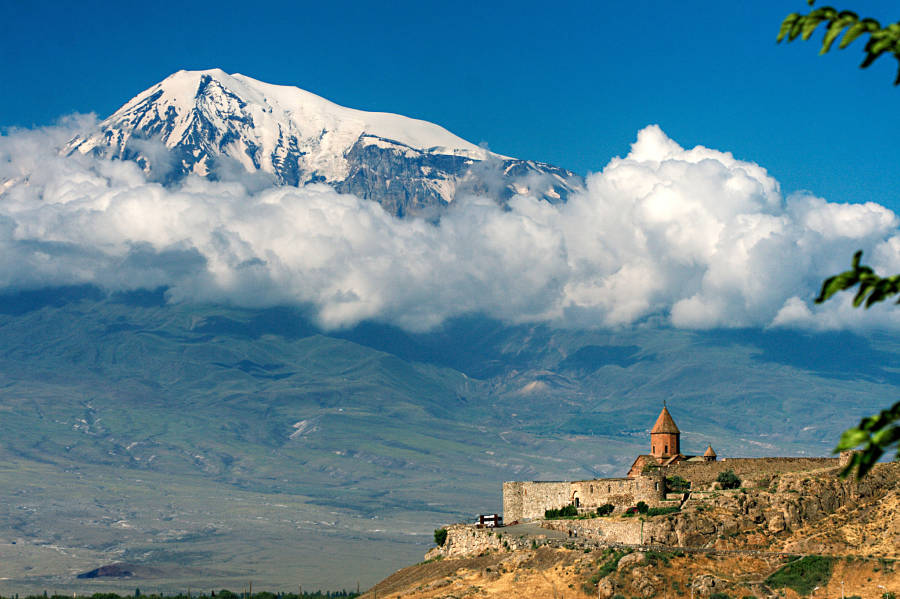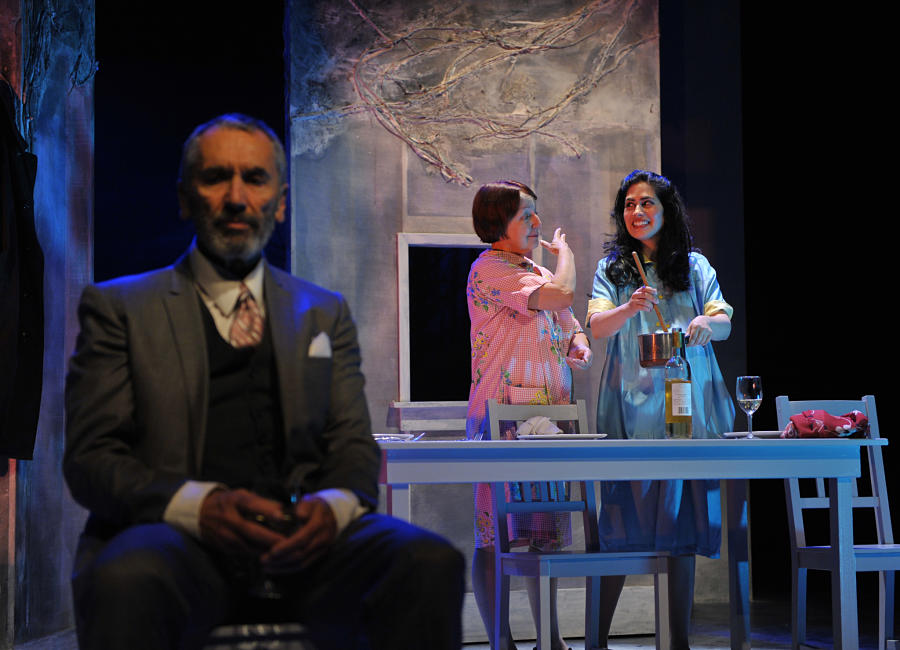I sit here on the balcony of the Silk Road Guest House, on Aygedzor St., in Yerevan, Armenia. I am finally here after several years of preparation and anticipation, 17 hours of flying and lost luggage, floating somewhere between time zones. My beloved mountain, Mt. Ararat, peers over the rooftops, cradled in an embrace of clouds, her constant companions, easing the grief that a mountain feels being separated from her people for a hundred years.
I am here to see my play Night Over Erzinga, produced by Hakob Ghazanchyan, at the Yerevan State Youth Theater, as a part of the cultural response to the 100-year anniversary of the Armenian genocide. The play has been translated into Armenian by the play’s director, Vartan Garniki. It took us more than a year, hundreds of phone calls, and many hours of tears and laughter to find the right language, the right translation of the soul of the story that needed to be enacted here, at this time in history—not easy, as I speak only a few words of Armenian.
In 2008, I was awarded the Middle East America Distinguished Playwright Award, given by the Lark Play Development Center, Golden Thread Productions and Silk Road Rising, commissioning me to write a play about the impact of the genocide on three generations. I had nothing when I began but a handful of my Oghidanian family stories and a burning question: How did my grandfather lose two families in one lifetime but not lose his heart?
I knew I had to travel to Armenia and my ancestral homeland, in present-day Turkey, to find out. Seeing Mt. Ararat for the first time from the plane window shook me to my core. Flying above her peak, I was flooded with tears; my whole family, both living and past, was seeing her with and through me. Weeks later, I placed wildflowers into the Euphrates River under the Bridge of Kemagh, where the members my grandfather’s entire village were brutally massacred. I understood that I was being baptized by the past I was being asked to carry through memory and through action.

How do you carry the wound of 1.5 million lives? How do you truly honor the dead? How do you heal from atrocities that are continually denied and still build a life that is not imprisoned by anger and loss?
The church bells toll in the distance as if in answer to my questions. Purification comes to mind. The process of making theatre and receiving it helps us to clean our wounds. Questioning and examining what we are carrying, we find our way and author a new story. This has been my intention in writing Night Over Erzinga: to write my way home. To connect with my ancestors and bring forth something that speaks to anyone who has had to leave home or has been brutally forced from it. To ask what must be remembered, and what must be let go of in order to really live, not simply survive. To meet the old story with a new ending. Hope.
Through each production at the Lark, Golden Thread, Silk Road Rising, and Hamazkayin, I have come closer and closer to understanding how to weave the threads of the past into a present so strong that it can hold the dead and lift the living. Tomorrow night, a group of Armenian actors will take the stage, in Yerevan, and bring my family—and so, our families—home. I will be there, as an Armenian granddaughter, and playwright, to receive them.


